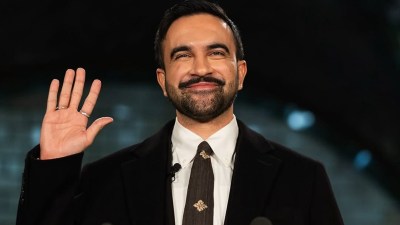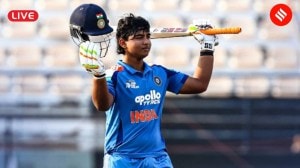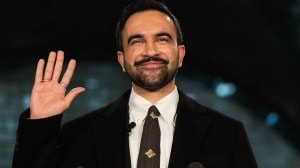These are the values we cherish
The extended debate on school education spread over two years is over. The Supreme Court of India has given its elaborate verdict. The proce...

The extended debate on school education spread over two years is over. The Supreme Court of India has given its elaborate verdict. The procedures and approach adopted by NCERT were found valid and the curriculum developed by it can now be implemented. It has also unanimously adjudged that making children aware of the basics of all the religions of India is not violative of Article 28 of the Constitution.
The verdict also indicated that the National Curriculum Framework for School Education 2000 nowhere talks of imparting religious instructions as prohibited under Article 28. What is sought is value based education so that students are made aware that the essence of every religion is common, only practices differ. There is specific caution that all steps should be taken in advance to ensure that no narrow-minded perceptions or prejudices are allowed to distort the real purpose. Dogmas and superstitions should not be propagated in the name of education about religions. What is sought to be imparted is incorporated in Article 51Ae, which highlights the need 8216;to promote harmony and the spirit of common brotherhood amongst all the people of India8217;. And to see that universal values, such as truth, righteous conduct, peace, love and non-violence be the foundation of education.
Expectedly, the NCERT has been commended by its well-wishers in India and abroad. While receiving these accolades, the NCERT is fully conscious of the institutional responsibilities that stand enhanced in the light of this judgement. The NCERT has promised to the nation that it works within the framework of the National Policy on Education, 1986-1992, and within the constitutional mandate, directives and principles which are relevant to educational enterprise. Secularism is one of the most significant of these.
As the national-level apex organisation in the field of school education, the NCERT has established its credibility over the last four decades. It is rather unfortunate that, possibly because of extra-academic considerations, certain persons, not all of them academics, felt deeply aggrieved by the much-belated initiatives undertaken by the NCERT to improve the system.
What has the NCERT recommended which is indeed so alarming? A nation-wide consultation was organised on the curriculum framework. Before the preparation of the Discussion Document on Curriculum Framework, released in January 2000, ten eminent intellectuals were invited separately to present their perceptions on the future shape of school education. They congratulated NCERT on taking the initiative to renew the curriculum.
To our utter surprise, a statement was made by one of them that 8216;proper8217; consultation did not take place. Copies of the Discussion Document were sent to many people for their response. One of them responded that although the discussion document was received, 8216;nobody further pursued and I received no reminders8217;. The reason for these sudden turnabouts and accusations are beyond my comprehension.
I was indeed amused to find a copy of a letter written in September 1998 by B.G. Verghese, one of the petitioners in the Supreme Court case. Verghese, as a member of the National Foundation for Communal Harmony, had pleaded for revision of the syllabi of the NCERT and UGC to include the study of comparative cultures and the religions. How can the same person find it against secularism and the State of India when NCERT pleads 8216;that children be made aware of the basics of the religions, their commonalities and the values inherent therein8217;.
India8217;s education system must be based on its own philosophical, cultural and sociological traditions. It must respond to the emerging needs and aspirations of the young generation. The new NCERT curriculum stresses the need to get education rooted in Indian reality and composite culture.
The writer is director, NCERT
- 01
- 02
- 03
- 04
- 05































